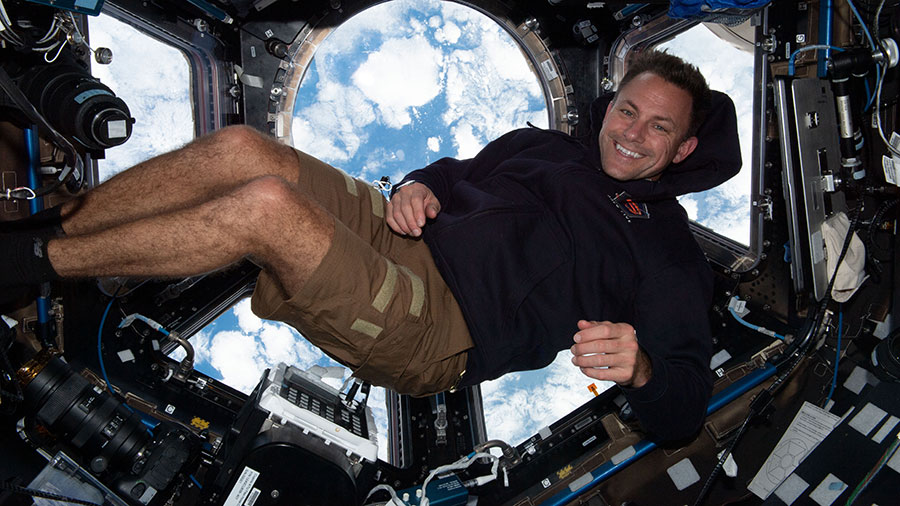
Tuesday’s main activities for the Expedition 68 crew included examining how the blood system is affected in weightlessness and working on a trio of different robotics activities. The four astronauts and three cosmonauts aboard the International Space Station also inspected a new toilet system and continued unpacking a new cargo craft.
The human body must adjust to living and working long-term in microgravity for a spaceflight mission to be successful. Astronauts exercise for about two hours every day and participate in a variety of tests their physiological adaptation, and to prepare their bodies for the return to Earth. Biomedical examinations are conducted before, during, and after a spaceflight, to learn how the human body changes on and off the Earth and to provide countermeasures against the adverse effects of living in orbit.
Tuesday’s human research looked at the cardiovascular system. NASA Flight Engineers Nicole Mann and Josh Cassada started their day drawing their blood samples, spinning the blood tubes in a centrifuge, and stowing them in a science freezer for future analysis. Afterward, Cassada attached sensors to himself for the Cerebral Autoregulation study measuring how the brain manages its own blood supply in space. Results may help crew members adjust quicker to gravity after returning to Earth and provide insights into blood pressure conditions.
Meanwhile, Tuesday was also a busy robotics day. The crew members practiced capturing a cargo craft, reviewed how to control free-flying assistants, and trained to operate a new robotic arm. Mann and Cassada studied on a computer the techniques required to capture the Northrop Grumman Cygnus space freighter, due to launch and arrive at the station next week, using the Canadarm2 robotic arm. Mann earlier turned on the Astrobee free-flyers in the Kibo laboratory module and learned how to maneuver the basketball-sized robotic assistants. Roscosmos Flight Engineer Anna Kikina continued getting up to speed with using the European robotic arm attached to the Nauka science module for upcoming cargo operations.
Astronauts Frank Rubio of NASA and Koichi Wakata of the Japan Aerospace Exploration Agency (JAXA) focused on lab maintenance cleaning science gear and preparing a new toilet for operations during Tuesday. Rubio opened up the Microgravity Science Glovebox, which hosts numerous science experiments from physics to biology, and cleaned its fans. filters, and components. Wakata worked on advanced orbital plumbing inside the Tranquility module checking the performance of a new toilet and its components and sensors.
Commander Sergey Prokopyev and Flight Engineer Dmitri Petelin were back inside the ISS Progress 82 cargo craft continuing to unpack some of the nearly 3,000 pounds of food, fuel, and supplies, less than a week after its arrival. The two cosmonauts also split their time working their contingent of space research, as well as, life support and electronic systems maintenance.
Learn more about station activities by following the space station blog, @space_station and @ISS_Research on Twitter, as well as the ISS Facebook and ISS Instagram accounts.
Get weekly video highlights at: http://jscfeatures.jsc.nasa.gov/videoupdate/
Get the latest from NASA delivered every week. Subscribe here: www.nasa.gov/subscribe
